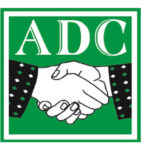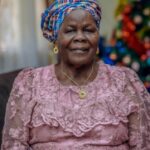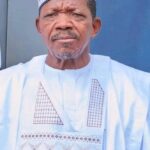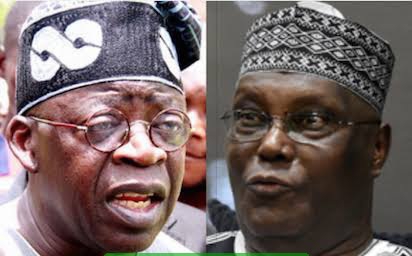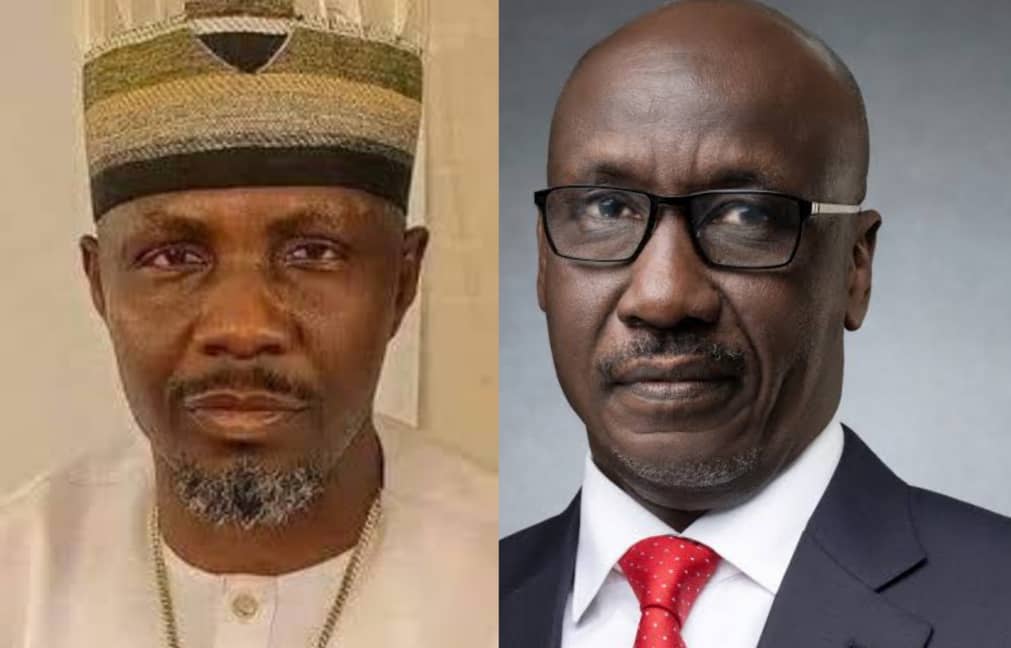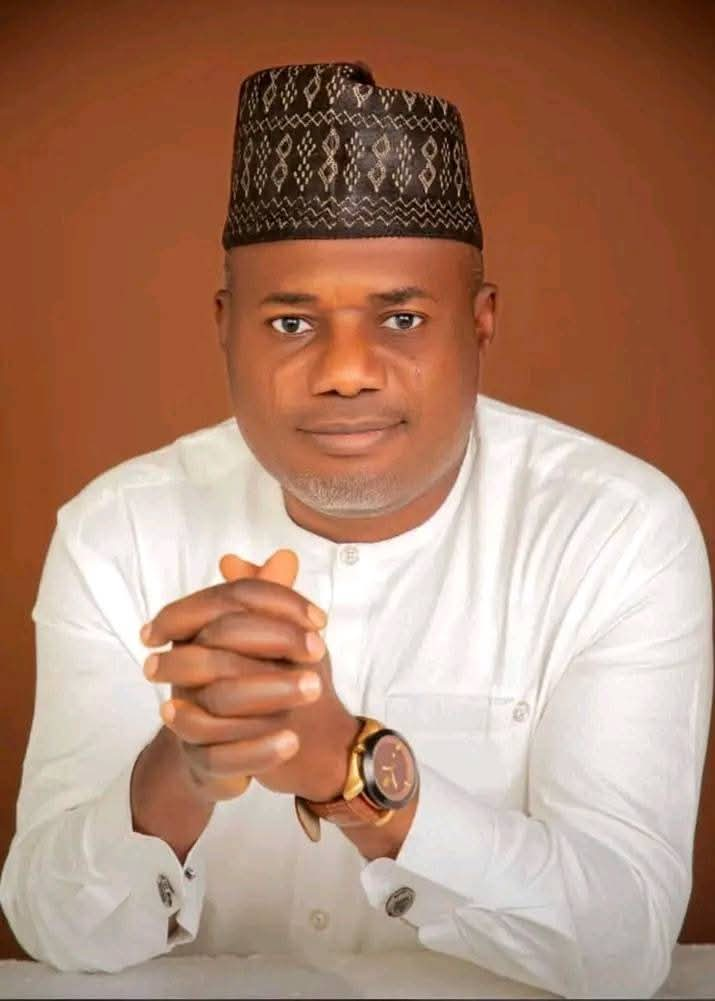By Dr. Nuruddeen M. Auwal
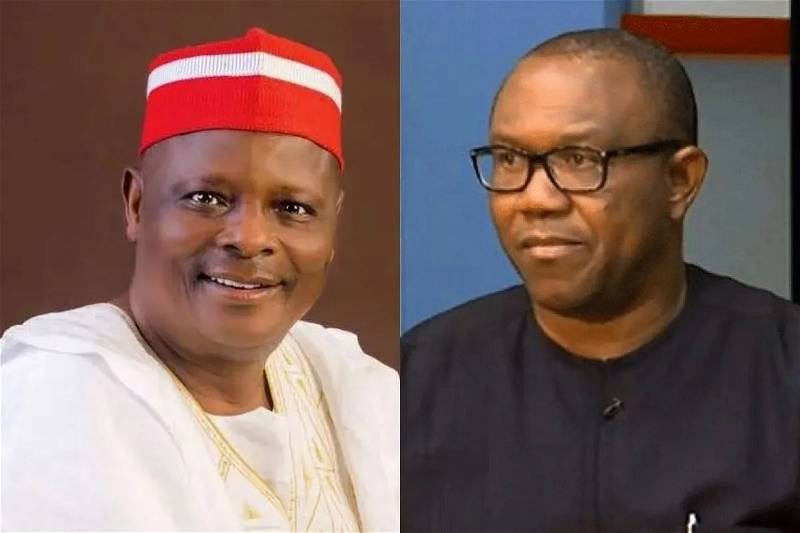
Abstract: The political contest for the office of the President of the Federal Republic of Nigeria is gathering momentum. In the midst of all the political turbulence, there is a need to step back and identify some fundamental trends in order to achieve some level of clarity. My analysis is bareknuckle in addition to being non-partisan. It is my personal appraisal. I set out a premise, conduct analysis and arrive at conclusion which predicts the outcome of the Presidential election.
Premise;
Our analysis will follow the time-honored three steps structure of laying out a foundation (or a premise). This will be followed by the body of the analysis which eventually will lead us to a logical conclusion.
There are four major contenders for the office of the President of the Federal Republic of Nigeria, namely (in alphabetical order):
(1) Atiku Abubakar of the PDP
(2) Bola Ahmed Tinubu of the APC (3) Peter Obi of the LP and (4) Rabiu Musa Kwankwanso of the NNPP.
Like is the practice in other political climes we do not have to wait for the actual election to try to ascertain the electoral potentials of the candidates.
The legal requirements for success in the electoral contest for the office of the President of the Federal Republic of Nigeria are crystal clear:
To win in the First Round of election, a candidate must obtain majority of votes nation-wide as well as at least 25% of the votes in at least 24 out of 36 states (and the FCT). In the event that none of the candidates is able to fulfil these conditions, then a run-off election will be held whereby the winner will be decided by a simple majority of votes.
In simple terms, what this means is that, for a candidate to win, he must have both volume and spread of electoral support in the country. This is absolutely crucial!
With the benefit of knowledge of past voting behaviour of Nigerians and knowledge of current political realities, one does not require a crystal ball to make a fairly reliable prediction on how the voting pattern in 2023 will unfold. The challenge is to keep one’s mind insulated from the influence of irrational biases.
The factors that will decidedly influence the election to the office of President in most of the 36 states will be significantly different from the factors that will influence election into other offices. This is in keeping with past trend in the six (6) elections (1999, 2003, 2007, 2011, 2015 and 2019) in the Third Republic (1990 to date). I must hasten to add that 1999 election was significantly different from subsequent election, in the sense that the major drive in that election was the over-riding consensus among all politicians to drive the military out of power.
It is my considered opinion that election into the office of the President in 2023 will be primarily and strongly influenced by religious and tribal sentiments (facilitated by party infra-structure); other factors will only play a secondary role. This statement will be particularly valid in the entire Northern Nigeria (19 States), the whole of Southeast (5 States) and the whole of Southwest (6 States). Although tribe and religion will play some role in the South-South (6 States), they will not be as decisive as in the other three zones; other factors (party affiliation, incumbency, political leaders/heavy-weights, local politics, perceived performance-potentials of candidates, etc) may play some roles.
ANALYSIS With these preambles in mind, let us boldly embark on an evaluation of the electoral chances of the major contenders, starting with Peter Obi:
It is fairly certain that Peter Obi will get overwhelming share of the votes of the Ibos wherever they reside in Nigeria. This will assure him majority in the five (5) South-Eastern states.
Peter Obi will also get overwhelming share of the votes from the Northern Christian population in all the 19 states. This will assure him majority of votes in the two Christian states of Benue and Plateau as well as significant share of votes in Taraba State.
My prediction is that the votes in the South-Southern states will be shared between the trio of Peter Obi, Abubakar Atiku and Bola Ahmed Tinubu. The deep schism in the PDP spearheaded by Governor Nyesom Wike is potentially a major drag on their electoral fortunes in this region. On the whole, the situation is so fluid in this part of the country it is difficult to predict with the same degree of certainty as it is in other parts of Nigeria.
In summary, Peter Obi’s electoral fortunes are strongly influenced by tribal (Igbo) and religious (in Northern Nigeria) sentiments.
As it is so often in life, his strength is also his weakness. The two factors (tribe and religion) severely limits his chances of breaking beyond these enclaves. His attempts of building alliance with other political forces have failed. His choice of running mate who is unlikely to add any electoral value underlines his limited chances beyond the boundaries stated above. By his own admission in an interview (as well as the proclamation of the Governor of his home state, Prof. Charles Soludo), it will require a “miracle” for Peter Obi to win the election. But as is typical with politicians, he emphasized his belief that, come 2023, the miracle will happen. Since my analysis does not take into account the likelihood of miracles, and for the reasons adduced earlier, I will drop Peter Obi as a viable contender in the 2023 Presidential election. His overall influence in the contest will be more of a ‘spoiler’ to the other stronger contenders.
On the positive side, given his meteoritic rise to prominence within a short period of time, I believe he could be a force to reckon with in future elections.
Next is Rabiu Musa Kwankwaso:
Over the last two decades or so, Kwankwaso has built a strong cult-like followership in Kano and Jigawa, and to a considerably less extent, in Katsina, Kaduna and Bauchi States. He also has a smattering of followers in other Northern states. He has developed and nurtured a formidable structure and followership in these states, particularly in Kano and Jigawa states.
His strength emanates from the massive number or votes in the North-Western region; however his glaring weakness is his lack of influence beyond his ‘home turf’. It must be stated that, even in Kano and Jigawa states, Kwankwaso’s support will be tempered by the counter influence of his ‘home rivals’, former Kano State governor, Ibrahim Shekarau and the sitting governor, Dr. Abdullahi Ganduje. By his own admission in an interview, Kwankwaso has acknowledged that his chances of winning the Presidential contest are not so good, and that if it becomes clear that he will not succeed, he will urge his followers to vote for Tinubu. This implied alliance may change.
For this reason, I will also drop Rabiu Kwankwaso as a truly viable contender. Like Peter Obi, Kwankwaso may also play the role of a ‘spoiler’ to the other stronger contenders, unless he makes good on his pledge to support Tinubu at some point in the run-up to the election.
Next is Atiku Abubakar:
The main strength of Atiku emanates from the broad, nation-wide political structure of the PDP as well as the fact that he comes from the Moslem Hausa/Fulani ethnic block with favorable sentiment in most of the 19 Northern States. It should be pointed out that, unlike Buhari in the 2011, 2015 and 2019 elections, Atiku Abubakar, for a variety of complex socio-cultural factors, does not enjoy the fanatical support of the Hausa/Fulani ethnic stock. Atiku Abubakar and his team also have the advantage of experience in electoral contest at the presidential level. These factors make Atiku Abubakar one of the truly viable contenders. We shall further analyse his strengths and weaknesses.
Next we shall consider Bola Ahmed Tinubu.
Bola Tinubu’s main strengths emanates from two principal sources. First is the fact that he comes from the Yoruba ethnic group and will enjoy overwhelming support of the entire Southwestern (six states) voters. Beyond being a Yoruba, Tinubu, over the last two decades or so, has practically demonstrated that he maintains a stranglehold over the politics of the Southwest. The second source of his strength comes from unequivocal support of the APC governors, particularly in the Northern States. It is no secret that the governors in these states (indeed all other states throughout the country) have contrived to tightly control the politics in their respective states. Their potential influence in the presidential and other elections cannot be over-emphasized. These two factors make Tinubu one of the truly viable contenders.
Preliminary Conclusion:
Our analysis so far has led us to a First Stage Conclusion that the 2023 Presidential election will be essentially a contest between Bola Ahmed Tinubu and Atiku Abubakar, with the other candidates playing the role of boosting or limiting the chances of either of the two main contenders.
Major Political Themes of The Presidential Election:
The Southern part of Nigeria is predominantly Christian; hence Muslims are a minority. Ironically, Christians are numerically a minority amongst the Yorubas, but they are by far the more dominant half.
Bola Ahmed Tinubu is a Muslim. In his practical adherence to Islamic tenets, he is as weak a Muslim as you would ever meet. His wife as well as some of his children are strong Christians. His wife is indeed a pastor. One would expect that, if there is a Muslim that Christians would feel at home with, it is Bola Ahmed Tinubu. However, by Nigeria’s electoral logic, Bola Tinubu is a Southerner and a Muslim. In the North-South context, he carries the burden of being a minority.
Bola Tinubu (with the backing of Northern governors and the APC party structure) emerged as the Presidential candidate. He had to pick a running mate from the North to make a winnable ticket.
Well before he made public his choice, the Northern Christians (from all parties) ganged-up and started campaigning for Tinubu to pick a Northern Christian for a running mate. They knew and every politically conscious person knew that Tinubu must pick a Muslim running mate to stand any chance of winning. To pick a Northern Christian would amount to electoral suicide.
Of course Tinubu picked a Muslim running mate.
Northern Christians will not vote a Tinubu because he is backed by Muslim North. Northern Christians never vote on the same side with Muslim Northerners; electoral results data emphatically supports this fact.
If it is the desire of Northern Christians to weaken and possibly defeat the Muslim/Muslim ticket, it has the opposite effect. The Northern Muslims whose vote a Presidential candidate cannot do without seem to resolve that they will set aside all other consideration to make sure that the Muslim/Muslim ticket wins. They believe that the Northern Christians have turned the contest into a religious one, even though they knew Tinubu’s decision to pick a Muslim was a tactical one, no more no less.
Many analyst of all political leanings have made similar analysis to the one I have presented above.
The recent support by the two Northern Christian protagonists in the persons of Babachir Lawal and Yakubu Dogara for Labour Party and Atiku Abubakar carries no electoral value because it well-nigh impossible to persuade their followership.
There are several other political themes that are dominating political discourse. I cannot discuss them because they will lengthen my write-up beyond what I intended. Suffice it to mention some of the themes. They include: The North-South Power Rotation
General cynicism engendered by economic and security challenges IPOB and the Biafran Agitation.The age and health status of the contender I will repeat my earlier assertion that it is the ethnic, tribal and religious sentiments (facilitated by parti infrastructure) that will decide the winner of the Presidential election.The Logic Primordial Sentiment Bias. Since my central thesis is that primordial sentiments will substantially decide the contest for the Presidential election, I feel it is necessary to spend some time in scrutinizing the process and logic of this phenomenon.
Primordial reasoning follows a progressively narrowing concentric cycle: It starts with preference for my country. Within my country, I prefer my section of the country. Within my section of the country I prefer my state . Within my state, I prefer my tribal group.
Within my tribal group, I prefer my Local Government Area.
Within my Local Government Area, I prefer my village.
Within my village, I prefer my clan. Within my clan, I prefer my family. Within my family, I prefer my immediate brothers and sisters.Within my brothers and sister, I prefer myself.
Most of these thought processes occur at sub-conscious level. Some people actually believe that they are swayed by ‘objective’ considerations. Primordial voters tend to view other people’s electoral decision as biased.
The primordial voter will always have a ‘logical, rational and objective reason’ for his/her judgment, such as educational qualification, age, medical condition, performance, fairness, inclusiveness, etc. However, in reality consideration for these factors only come after the biased decision had been made. These considerations only serve to justify the biased decision. The ultimate proof of primordial sentiments in election is revealed by the pattern of election results.
It is my considered opinion that most of the expenditure and campaign efforts by the candidates are wasteful, from the view point of influencing voters. Only a tiny proportion will actually be swayed by the campaign efforts. The minds of the voters have largely been made up based on the factors we have outlined.
SWOT ANALYSIS
SWOT ANALYSIS is a well-known tool of analysis which help to sharpen focus on important elements in evaluating an organization or individual. Given that we have narrowed our focus to two main contenders, I felt that SWOT Analysis will help us evaluate their electoral chances.
SWOT ANALYSIS: ATIKU ABUBAKAR
Objective/Goal: Win the 2023 Presidential Election.
Strengths
Weaknesses
Deep pocket
Tenacity
Business acumen
Religious neutrality
Age and failing health
Lack of oratory skill
Reputational risk on integrity
Opportunities
Threats
Hausa/Fulani ethnic support
PDP political network.
Peter Obi in the South-East and Christian North as well as Nyesom Wike in the South-South
SWOT ANALYSIS: BOLA
TINUBU
Objective/Goal: Win the 2023 Presidential Election
Strengths
Weaknesses
Deep pocket
Ambition
Strategic acumen
Religious neutrality
Age and failing health.
Lack of oratory skill.
Reputational risk on integrity.
Opportunities.
Threats.
Yoruba ethnic support.
Incumbency factor at Federal. level and with Northern. governors .
The Muslim/Muslim ticket
Kwankwaso in the North-West
A section of Yoruba Political establishment
Notes: Strengths & Weaknesses are internal to the person, while Opportunities and Threats come from the environment external to the person, while Strengths and Weaknesses already manifestly exist in the person, Opportunities and Threat are potentials that could materialize.The drive or effort of the contender should be towards converting his Weaknesses into opportunities and Threats into Strengths.
Strengths & Weaknesses
The two candidates mirror one another in terms of their strengths and weaknesses.
They both have deep enough pockets to compete. They both have exhibited unrelenting desire for what they have set out to achieve.
They also match each other in terms of their strategic acuity.
On the weaknesses side of the equation, they both are not bubbling with energy and vigor as a result of advanced age and medical conditions.
Neither of them can be described as an orator; they struggle to express themselves persuasively. In terms of perceived personal integrity, they both are carrying a baggage of reputational risk primarily because it is widely believed that they both made their fortunes through government patronage.
The overall conclusion on this stage of the analysis is that neither Atiku Abubakar nor Bola Tinubu holds any significant edge on account of his personal strength or weakness. The battle will be fought in Opportunities and Threats.
Opportunities & Threats. As we said earlier, while Strengths and Weaknesses are real and manifest, Opportunities and Threats are external to the person and exist in the form of potentials to be harnessed or neutralized.
It would be recalled that I made it unequivocally clear that the two elements of ethnicity and religion will be the dominant factors that will decide the result of the Presidential election. For Atiku Abubakar, the major Opportunity he could potentially harness is his belonging to the largest ethnic block in Nigeria. The Hausa/Fulani ethnic group is so large, so dominant that no candidate could possibly win a presidential election in Nigeria without their significant support; other ethnic blocks could only play complementary role. However, although Atiku Abubakar comes from this dominant group, he may not be able to optimally exploit its potential for three major reasons. First is the fact that, for some socio-psychological reasons, he does not evoke the necessary native appeal or passion amongst the Hausa/Fulani populace. I do not pretend know exactly what these reasons are, but I have no doubt that he does not simply have that emotional connection with the Hausa/Fulani ethnic group. I know that his followers may disagree with me on this point, but the ultimate proof will be revealed by the results of the poll. The second reason why he may not succeed in harnessing the Hausa/Fulani ethnic factor is the support of the Northern governors for Bola Tinubu and their resolve to work for the success of the APC candidate. It is a well-established fact that most governors in Nigeria tend to have firm grip of the politics in their states. Hence the influence of the Northern governors is a factor not to be taken lightly. The third factor which will inhibit Atiku Abubakar from harnessing the ethnic element is the influence of Kashim Shetima (Bola Tinubu’s running mate) in two of the North-Eastern States (Borno and Yobe). Being a Kanuri and a former governor with considerable following, his influence will dominate electoral result in these two states more than any other Northern State.
If my analysis and projection turn out to be accurate, then the electoral fortunes for Atiku Abubakar will be considerably diminished. The second opportunity that should be available for Atiku Abubakar to harness is the nation-wide PDP political infrastructure. This could have been a portent weapon because it will avail Atiku Abubakar the necessary national spread which is crucial for success. However, its influence is almost completely nullified by Peter Obi in the South-East and Wike (and his G5 colleagues) in the South-South. These are the threats that Atiku Abubakar faces. As at the time of writing these notes, efforts to bring back into the PDP fold, the rebellious governors, has not yielded fruit. Notwithstanding these negative influences, Atiku Abubakar still remains a formidable foe.
For Bola Tinubu, the ethnic opportunity comes in the shape of dominant followership in the six Yoruba South-Western States.
Although some Yoruba political heavy weights initially rose in opposition to his candidature, but this appears to be wilting. The South-West is Bola Tinubu’s secure base where he will likely garner nothing less than 80% of the votes. His other opportunity is the incumbency factor at the Federal Level and the support of the Northern Governors which precipitated his emergence as the APC Presidential candidate. The other opportunity handed to Bola Tinubu is the vociferous opposition of the Northern Christian coalition to the Muslim/Muslim ticket. Rather than take away votes from the APC candidate, the campaign against Muslim/Muslim ticket plays right into the hands of Bola Tinubu. The indisputable fact is that, no matter the religious composition of the APC ticket, the Northern Christians, as a group, had never voted for any party supported or dominated by Northern Muslims. The results of the six presidential elections (1999 to date) emphatically supports this assertion. Therefore the opposition to the so called Muslim/Muslim is simply yet another excuse to vote against Muslim majority. In the context of the 2023 Presidential race, it amounts an oblique campaign for Bola Tinubu and against Atiku Abubakar. The Northern Muslim population views the opposition to Muslim/Muslim ticket as a deliberate and cynical affront and a challenge. The opposition is based on something that is not what it is purported to be and therefore would be expected to strengthen (rather than weaken) their support for the Muslim/Muslim ticket.
Final Conclusion/Prediction
From the analysis presented above, I predict that, as the night follows the day, Bola Ahmed Tinubu will emerge the winner of the 2023 presidential election. May Allah continue to guide and protect us all.
Dr. Nuraddeen M. Auwal, is a
Management Consultant,he writes from Abuja.


